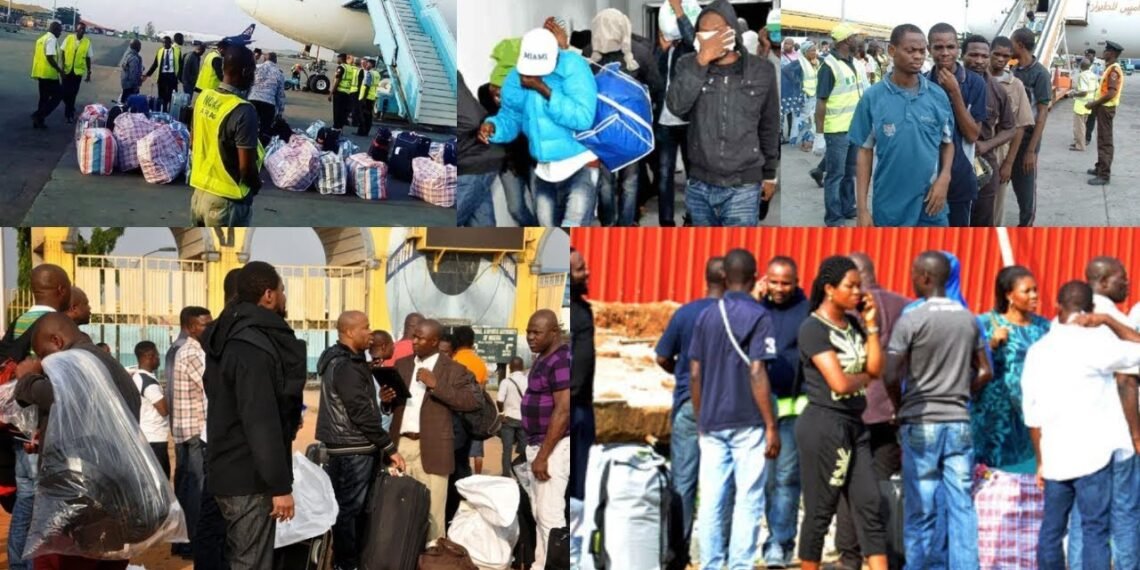A group of 400 Nigerians deported from the United Arab Emirates (UAE) arrived at Abuja’s Nnamdi Azikiwe International Airport on Wednesday. This large-scale deportation comes only months after both governments promised to lift travel restrictions.
The returnees included 90 women and 310 men. Officials from several Nigerian agencies, including the Office of the National Security Adviser (ONSA), the National Emergency Management Agency (NEMA), the National Commission for Refugees, Migrants, and Internally Displaced Persons (NCFRMI), and the National Agency for the Prohibition of Trafficking in Persons (NAPTIP), were on hand to receive them. This coordinated response aims to help manage the returning citizens and address any immediate needs they might have.
This deportation follows a two-year visa ban the UAE imposed on Nigerians, rooted in ongoing diplomatic disputes. One major issue was the suspension of Emirates Airline flights to Nigeria, after Nigeria’s Central Bank failed to remit $850 million in airline revenue to the UAE. Recently, Nigeria repaid 98% of the amount owed, but unresolved tensions between the two countries continue to affect Nigerians living in the UAE.
Read Also: Breaking: APC, PDP reject Edo election peace accord, tensions heightened
In July 2024, the UAE announced it would lift visa restrictions on Nigerians, sparking hope for smoother travel and better relations. However, the mass deportation indicates that significant issues remain. Many Nigerians now wonder if the visa restrictions were truly lifted or if diplomatic challenges still threaten their future in the UAE.
Earlier this year, the Nigerian government assured its citizens that it was working to resolve these issues. But with 400 Nigerians forced to return in a single wave, the situation raises serious concerns. The returnees are expected to undergo screenings and reintegration support, led by NEMA and other government agencies. However, many of them may face additional challenges, including finding new job opportunities and adjusting back to life in Nigeria.
This deportation wave, along with the underlying diplomatic tensions, has put pressure on relations between Nigeria and the UAE. Nigerians are closely watching the situation, hoping for improved conditions but fearing that relations may worsen further.






